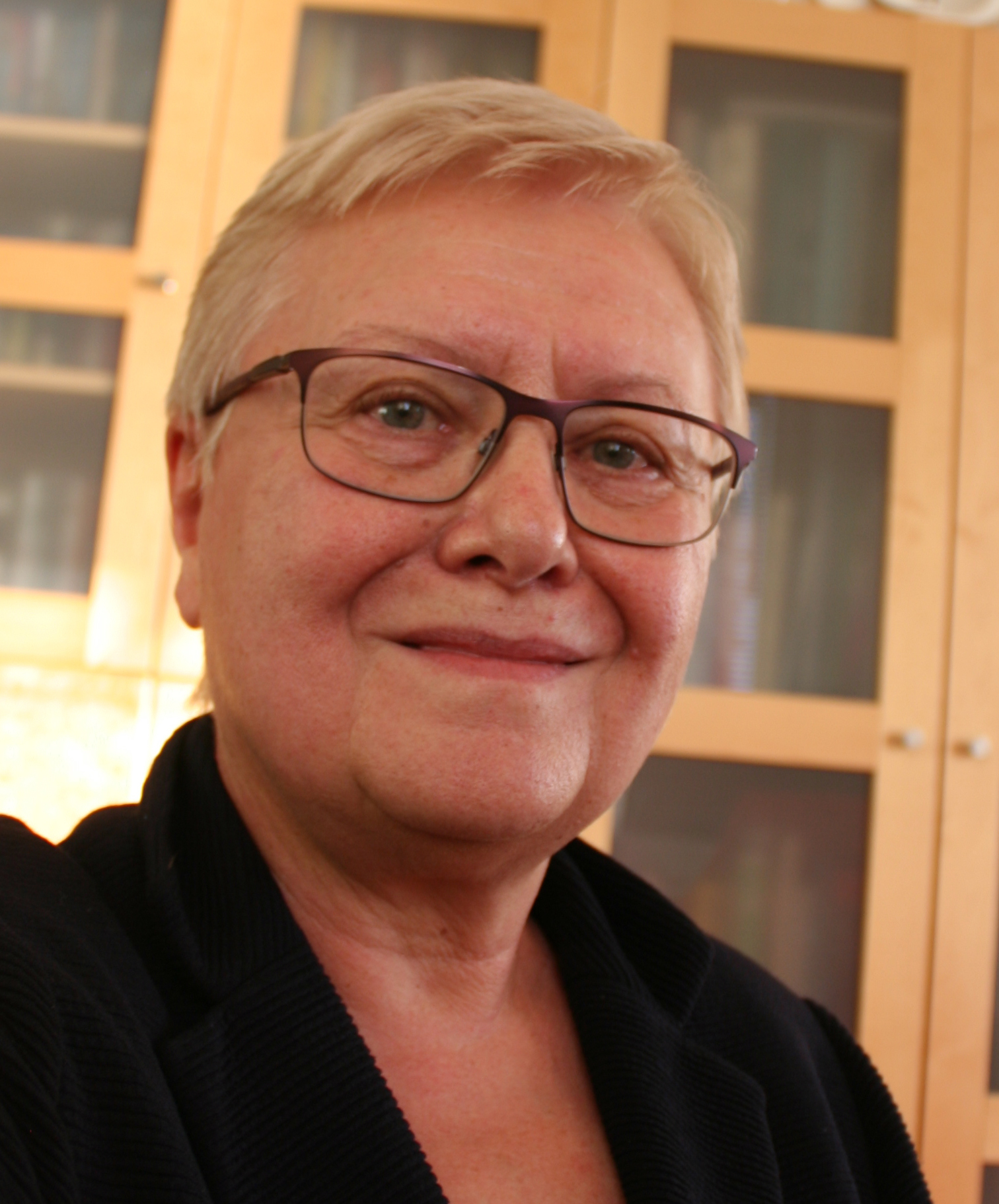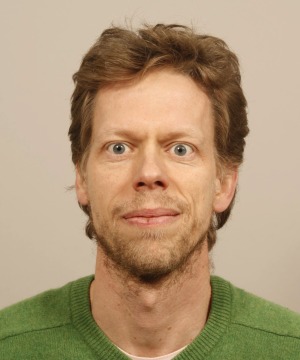Keynotes

Gordana Dodig-Crnković, Mälardalen University & Chalmers University of Technology, Sweden
Navigating the White-Water World with Digital Humanism
This keynote will begin by exploring the profound impact of emergent AI technologies on modeling, ethics, and sustainability, transitioning from narrow technical themes to broader global issues of techno-social systems. It will highlight the potential of emerging technologies of AI, in combination with the “Internet of everything” to reshape not only products and services but also our thinking processes and conceptual frameworks. The earlier “mechanical” automation process has been transformed into “cognitivization”/ “intelligentization.” The ongoing “intelligence wave” has engulfed the world, evoking both awe and fear. As AI technology becomes more and more powerful, the age-old adage applies: “With great power comes great responsibility.” In this talk, the perspective of Digital Humanism will be presented as a way of navigating the contemporary white-water world, driven by the prospect of a more humane and inclusive future. By integrating ethical considerations, sustainable development, and responsible engineering with social aspects it fosters a shared mindset for guiding technology development and policies. In conclusion, some of the activities of the Digital Humanism movement will be outlined.”
Link to Presentation
Biography
Gordana Dodig-Crnković is Professor of Computer Science at Mälardalen University, and Professor of Interaction Design at Chalmers University of Technology, Sweden. She holds PhD degrees in Physics and Computer Science. Her research focuses on the relationships between computation, information, and cognition, including ethical and value aspects. She has been teaching courses in Research Methodology and Theory of Science, Professional Ethics, as well as Formal Languages, Automata and Theory of Computation. She published a book Information and Computation Nets in 2009 and several edited volumes. including “Information, Computation, Cognition” with Susan Stuart in 2007; three volumes with Mark Burgin: “Information and Computation” in 2011, “Philosophy and Methodology of Information” in 2019, and “Theoretical Information Studies” in 2020. With Raffaela Giovagnoli she published volumes “Computing Nature” in 2013 and “Representation and Reality” in 2017. Dodig-Crnković is the past President of the International Society for the Study of Information, a member of the editorial board of the World Scientific Series in Information Studies, and Springer SAPERE series, and a member of the editorial board of several journals. She is a member of the AI Ethics Committee at the Chalmers University of Technology and an external member of The Karel Capek Center for Values in Science and Technology, [www.cevast.org](https://www.cevast.org/), a research interdisciplinary center established by the Czech Academy of Science, Faculty of Natural Sciences and the Charles University, Prague. Personal web page [http://gordana.se](http://gordana.se)

Maurice ter Beek, ISTI-CNR, Italy
Models for formal methods and tools: the case of railway systems
Formal methods and tools are successfully applied to the development of safety-critical systems for decades now, in particular in the transport domain, without a single technique or tool emerging as the dominant solution for system design. Formal methods are highly recommended by the existing safety standards in the railway industry, but railway engineers typically lack the knowledge to transform their semi-formal models into a formal model, with a precise semantics, that can serve as input to formal methods tools. We share the results of performing empirical studies in the field, including usability analyses of formal methods tools involving railway practitioners. We discuss, in particular with respect to railway systems and their modelling, our experiences in applying formal methods and tools to a variety of case studies, for which we interacted with a number of companies from the railway domain. We report on lessons learned from these experiences and provide pointers to steer future research towards facilitating further synergies between researchers and developers of formal methods and tools on the one hand, and practitioners from the railway industry on the other.
Link to the presentation
Biography
Maurice ter Beek is senior researcher at ISTI-CNR (Pisa, Italy) and head of the Formal Methods and Tools lab. He obtained his BSc, MSc and PhD in Computer Science at Leiden University (The Netherlands). He works on formal methods and model-checking tools for the specification and verification of safety-critical software systems and communication protocols, focusing in particular on applications in service-oriented computing, software product line engineering and railway systems. He is board member of FME (Formal Methods Europe) and member of the steering committees of COORDINATION, FMICS (which he currently chairs), iFM, SPLC and VaMoS, and regular PC member of ABZ, COORDINATION, FM, FMICS, FormaliSE, iFM, RSSRail, SEFM, SPLC and VaMoS, among others. He recently served as PC chair of VaMoS 2017, FM 2019, FMICS 2020, SPLC 2021, COORDINATION 2022 and iFM 2022, and as general chair of FMICS-AVoCS 2016 and SPLC 2023. He has co-authored over 150 peer-reviewed papers, co-edited over 30 proceedings and special issues of journals, and serves on the editorial boards of the journals Formal Aspects of Computing: Applicable Formal Methods, International Journal on Software Tools for Technology Transfer, Journal of Logical and Algebraic Methods in Programming, PeerJ Computer Science, Science of Computer Programming and ERCIM News.

Hans Vangheluwe, University of Antwerp - Flanders Make, Belgium
A "most appropriate” Talk
As the complexity of Cyber-Physical Systems (of Systems) we build grows, the need for an elegant theory, and methods, techniques, and tools to tackle that complexity increases. This talk gives a very personal and anecdotal overview of some attempts to tackle the complexity of engineered systems by explicitly "modelling everything" (that is relevant, at some point in time) by means of "most appropriate" views, architectures, and workflows, and this for all phases of the system life-cycle such as system requirements, design and deployment/realization. To represent each of these views, architectures, and workflows, we use models, at "most appropriate" levels of detail/abstraction/fidelity, using "most appropriate" modelling languages (formalisms). This appropriateness is of course highly subjective and depends on the application domain, the background of the modeller, availability of tools, etc. A major challenge is a heterogeneity in domain silos, in modelling abstractions and formalisms, and in particular how to combine these. Even for this challenge, as well as for the construction of supporting editing, simulation, debugging, ... tooling, using "most appropriate" abstractions and formalisms turns out to be beneficial. This talk will both look back at past challenges and solutions and will try to extrapolate "most appropriate modelling" into a future where dealing with "change" plays a central role.Link to the Presentation
Biography
Hans Vangheluwe is a Professor in the Antwerp Systems and Software Modelling (AnSyMo) group within the Computer Science Department at the University of Antwerp in Belgium, where he is a founding member of the NEXOR Consortium on Cyber-Physical Systems (CPS). AnSyMo is a Core Research Lab of Flanders Make, the strategic research centre for the Flemish manufacturing industry. He heads the Modelling, Simulation and Design Lab (MSDL), founded when he was a professor at McGill University in Montreal, Canada. In a variety of projects, often with industrial partners, he develops and applies the model-based theory and techniques of Multi-Paradigm Modelling (MPM) in application domains as diverse as bio-actived sludge waste-water treatment plant design and optimization (which led to the WEST commercial tool), safe automotive software (within the NECSIS project), and autonomic production plants in the context of Industry 4.0.
His fundamental work covers the foundations of modelling and (co-)simulation, of model management, model transformation, and collaborative domain-specific (visual) modelling environments. This work is always accompanied by prototype tools such as WEST, Python(P)DEVS, the Modelverse, T-Core, AToM3 (with Juan de Lara) and AToMPM. In the mid ’90s, he was one of the original members of the equation-based, object-oriented modelling language Modelica design team, one of the initiatives of the ESPRIT Basic Research Working Group 8467 on “simulation for the future: new concepts, tools and applications” (SiE) which he co-founded. He has published extensively in simulation and in software modelling. He frequently gives tutorials on topics such as Statecharts, DEVS, co-simulation, modelling language engineering and a-causal modelling. He was the co-organizer, with Vasco Amaral, of Summer Schools such as Domain-Specific Modelling, Theory and Practice (DSM-TP). Recently, he was the chair of the EU COST Action IC1404 “Multi-Paradigm Modelling for Cyber-Physical Systems” (MPM4CPS). He is known to try to “model everything explicitly …”.